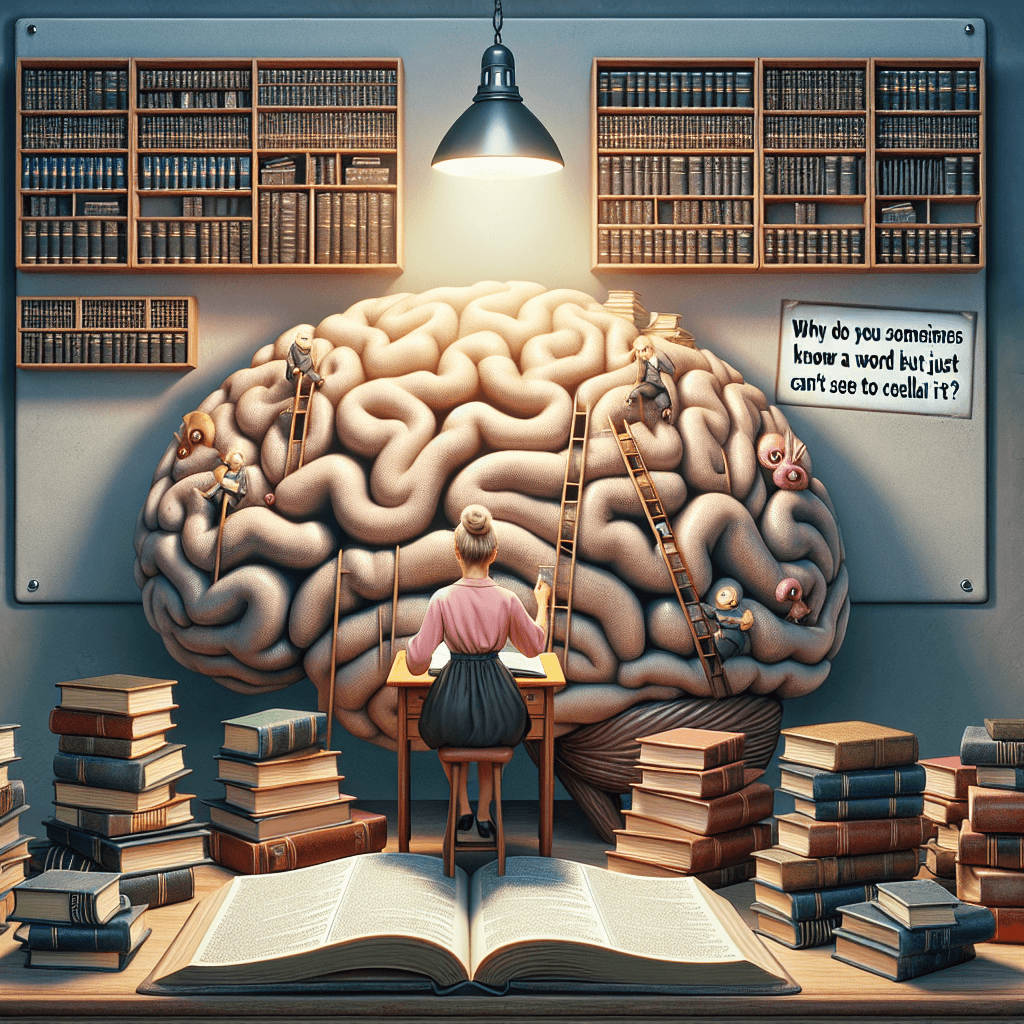Why do you sometimes know a word but just can't seem to recall it
It's not a memory failure, it's a fascinating glitch in your brain's filing system—and we'll explain exactly what’s happening when a word gets stuck on the tip of your tongue.


Too Long; Didn't Read
That tip-of-the-tongue feeling is a temporary retrieval glitch, not memory loss. Your brain knows the word's meaning but can't access its sound, often due to stress, fatigue, or the word being rarely used.
On the Tip of Your Tongue: The Science Behind Why You Know a Word But Can't Recall It
You're in the middle of a story, trying to describe a specific type of flower you saw. You can picture it perfectly—its color, its shape, even where you saw it. You know the name, you feel like you know it, but it just won't come to you. It’s a frustrating mental blank that nearly everyone has experienced. This feeling has a name: the tip-of-the-tongue (TOT) phenomenon. It’s a common, and thankfully temporary, cognitive glitch that offers a fascinating window into how our brains store and retrieve information. This post will explore the science behind these maddening moments, explaining what’s happening in your brain when a word gets stuck.
What is the Tip-of-the-Tongue Phenomenon?
The tip-of-the-tongue phenomenon is a state of failed memory retrieval where you feel retrieval is imminent. It’s not that you’ve forgotten the word entirely; you just can't access it at that moment. A key feature of the experience is that you can often recall related information about the elusive word. You might remember:
- The first letter it starts with.
- The number of syllables it has.
- Words that sound similar or have a related meaning.
This partial recall is what makes the experience so vexing—you have all the clues, but you just can't solve the puzzle.
The Brain's Filing System: A Retrieval Error
Think of your brain's vocabulary storage as a vast, intricate library. Retrieving a word isn't as simple as pulling a single book off a shelf. It's a two-step process involving different types of memory.
Step 1: Accessing the Meaning (Semantic Memory)
First, your brain accesses the word's meaning, or its semantic information. This is the concept itself—the definition, context, and related ideas. When you’re trying to think of the word "astronomy," your brain successfully activates the concept of studying stars, planets, and the universe. You’ve found the right file in your mental cabinet.
Step 2: Accessing the Sound (Phonological Memory)
The second step is to retrieve the word's sound, or its phonological information. This is the sequence of sounds that make up the word "as-tron-o-my."
Researchers believe the TOT phenomenon occurs when there is a weak connection or a temporary breakdown between the semantic and phonological stages. You’ve successfully accessed the meaning, but the pathway to the sound information is blocked. You know what you want to say, but you can’t recall how to say it.
Why Does This Mental Glitch Happen?
Several factors can make these retrieval failures more likely.
- Infrequently Used Words: Words you don't use often, especially proper nouns like names of people or places, have weaker neural pathways. This makes them harder to retrieve on command compared to common words you use daily.
- Aging: TOT moments tend to become more frequent as we get older. This is considered a normal part of cognitive aging and is related to subtle changes in the brain's neural connections. It is generally not a sign of a more serious memory disorder.
- Fatigue and Stress: When you're tired, stressed, or mentally exhausted, your brain's cognitive resources are limited. This can interfere with complex processes like memory retrieval, making it harder to complete the link between a word's meaning and its sound.
- The "Ugly Sister" Effect: Sometimes, a similar-sounding but incorrect word gets in the way. Psychologists call this a "blocker" word. For example, trying to recall the word "anecdote" but your brain keeps supplying "antidote." This incorrect word can actively block the retrieval of the correct one.
How to Resolve a Tip-of-the-Tongue Moment
While frustrating, these moments usually resolve on their own. However, if you want to speed things up, here are a few strategies:
- Stop Forcing It: Actively trying to force the word out can sometimes make the block worse. It’s often more effective to relax, think about something else, and let your brain's background processes do the work. The word may pop into your head a few minutes later when you least expect it.
- Activate Related Cues: Instead of focusing on the word itself, think about things related to it. If it's an actor's name, list the movies they were in. If it's an object, describe its properties. This can help activate the correct neural network.
- Go Through the Alphabet: Silently running through the letters of the alphabet can sometimes trigger the first sound of the word, which is often enough to unlock the rest of it.
Conclusion
The tip-of-the-tongue phenomenon is more than just an annoying mental hiccup; it’s a demonstration of the incredibly complex, multi-stage process our brains use just to utter a single word. It reveals the separation between knowing a concept and knowing its name. While it can be more common with age or stress, it is a perfectly normal part of how memory works. So, the next time you find a word lingering just beyond your mental grasp, take a breath. Instead of getting frustrated, you can appreciate the fascinating, intricate, and sometimes imperfect machinery of your mind at work.


